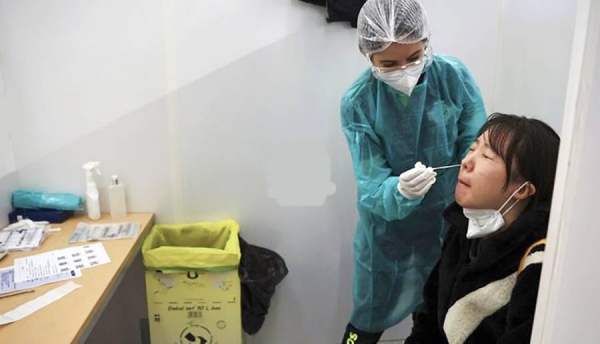
TEHRAN: Ramadan began in Iran on Saturday as health officials raised fears of a “fresh outbreak” of coronavirus disease (COVID-19) cases in the country, two weeks into a gradual reopening of shops.
As the country marked the start of the holy month of Ramadan, another 76 fatalities were declared.
With an official death toll of 5,650, Iran has paid the deadliest price in the Middle East from the pandemic.
Authorities have in phases since April 11 allowed the reopening of a number of businesses that were closed as part of measures to curb the spread of the COVID-19 disease.
Mosques, however, will remain closed until further notice and authorities have ordered that iftar meals — when extended family and friends traditionally gather to break their daytime fasts after sunset — must be restricted to the immediate family.
“We usually go to the mosque to pray, but not this time,” said Ahmad Bakhchi, who sells religious goods at north Tehran’s Tajrish Bazaar abutting the Imamzadeh-Saleh Mosque, an important shrine that remains shuttered.
“It makes us sad, but we have no other choice but to be patient,” he told AFP.
Fellow vendor Morad Ali Soleimani, whose nearby stall is stocked with kitchenware, said: “Closing the mosques was the right decision.”
“But when the virus subsides, they will have to reopen,” he added, “they cannot remain closed ... for too long.”
The spread of the disease in Iran has slowed since the start of April, but Alireza Zali, the anti-coronavirus coordinator for the capital, on Saturday criticized “hasty reopenings.”
They could “create new waves of sickness in Tehran and complicate efforts to bring the epidemic under control,” he said, quoted by the semi-official news agency ISNA.
Health Ministry spokesman Kianoush Jahanpour said Iran has now recorded 89,328 cases of COVID-19, including 1,134 over the past 24 hours, since its first case in February.
The number of Iranian casualties is widely thought to be much higher, however.
Jahanpour reiterated that social distancing and hygiene measures to guard against the novel coronavirus needed to remain in place.
The ministry’s infectious diseases department head, Mohammad Mehdi Gouya, warned of “signs of a fresh outbreak” in provinces such as Gilan and Mazandaran in the north and Qom in central Iran “where we made great efforts to control the epidemic.”












